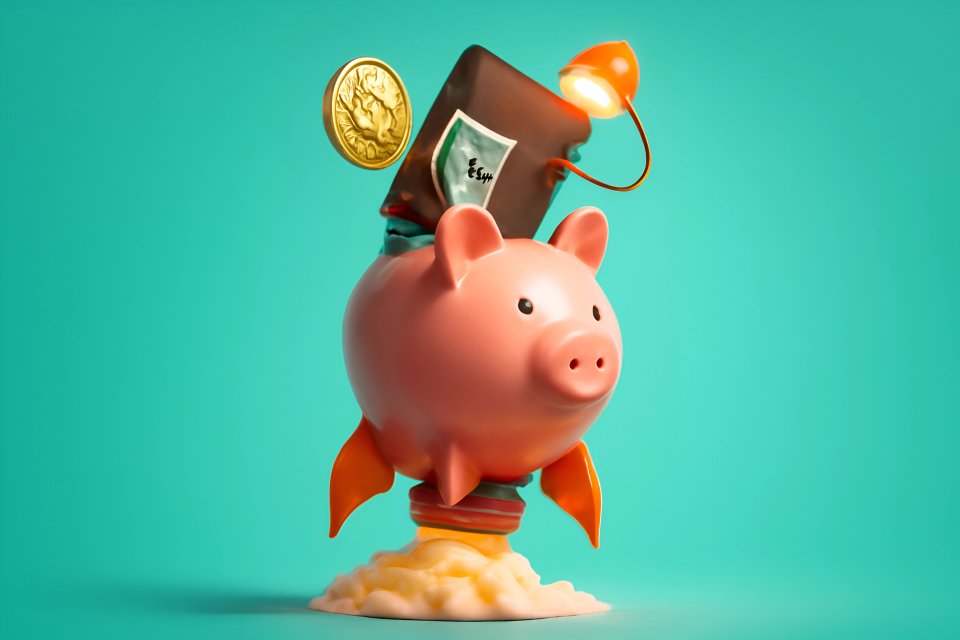
Tired of the soul-crushing grind? The endless food delivery runs, the mind-numbing survey sites, the gig economy jobs that pay pennies for your time and sanity. You’re hustling, but you’re not getting ahead. You’re just getting… tired.
What if there was another way? What if your weekend obsession with historical cartography, competitive dog grooming, or restoring vintage synthesizers could actually pay your bills? What if the thing you do for love could become the thing that gives you financial freedom?
This is your guide to that reality. We’re moving beyond the obvious to show you exactly how to transform your most unique, niche, or even "weird" hobbies into legitimate online income streams. This isn't about getting lucky; it's about strategic thinking, leveraging the power of hyper-focused online communities, and mastering the art of hobby monetization. This is how you earn smarter, not just hustle harder.
The Niche Advantage: Why Your "Weird" Hobby is a Goldmine
Here’s a secret the gurus won’t tell you: your "weird" hobby is a strategic goldmine. While everyone else is fighting for scraps in saturated markets, your unique passion gives you an unfair advantage. These unconventional side hustles are often far more successful than their mainstream counterparts for a few critical reasons.
First, the competition is virtually non-existent. You aren't trying to become another generic "lifestyle blogger" competing against millions. You are the go-to person for vintage typewriter restoration, the trusted voice for Antarctic exploration history, the expert on sustainable aquaponics in small apartments. This instantly positions you as an authority, a big fish in a small, profitable pond.
Second, your genuine enthusiasm is the most powerful marketing tool on the planet. You don't have to fake it. That passion builds an unbreakable bond of trust and authenticity with your audience, creating a loyal following that hangs on your every word. According to a study by Talker Research, 56% of Americans have a hobby, and for many, it's a core part of their identity—an identity they are eager to connect with and spend money on.
Idea Generation: Uncovering Your Monetizable Passion
The biggest lie you've been told is that your interests are too strange to make money. The truth is, the internet has a corner for every obsession. Here are just a few ways to turn passion into profit, broken down by your unique archetype.
The Creator & Crafter
Your hands are your tools, and you bring ideas to life. Instead of just making things for yourself, you can build a business around your craft.
Consider the world of custom D&D miniature painting. You could offer commissions for players' unique characters, create stunning painting tutorials for a YouTube channel monetized with ads and Patreon, or even design and sell your own custom 3D-printable files on a marketplace.
Or perhaps you're skilled in modern calligraphy or the ancient art of bookbinding. You could sell gorgeous, custom-made journals on Etsy, host paid online workshops to teach your skills, or create and sell digital brush packs for artists using apps like Procreate. Even a hobby like urban foraging can be monetized by creating a hyper-local blog with a paid subscription for foraging maps and guides, or a YouTube channel documenting your finds that attracts sponsorships from outdoor brands.
The Knowledge Keeper & Expert
You are a walking encyclopedia on a topic that fascinates you. Your knowledge is a valuable asset waiting to be packaged and sold.
Are you a niche history buff obsessed with, say, Ancient Roman cooking? You could start a YouTube channel recreating historical recipes, write a paid newsletter offering deep dives into culinary history, or launch a niche history podcast that attracts dedicated listeners and sponsors. As noted in a Shopify blog post on side hustles, building an audience through engaging content on platforms like YouTube is a proven path to income.
Maybe you're a specialized software guru, a master of complex programs like Blender or Scrivener. You can create and sell advanced project templates that save others hours of work, offer one-on-one coaching sessions, or build an in-depth online course that becomes a source of passive income. Even a home barista can get in on the action by blogging about rare coffee beans with affiliate links, creating a paid community for home brewing enthusiasts, or selling curated "tasting kits."
The Collector & Curator
You have an eye for the rare, the valuable, and the interesting. Your passion for collecting can be transformed into a thriving business.
Take vintage tech restoration. You can document your process of bringing old radios or computers back to life on YouTube and TikTok, building an audience of fellow enthusiasts, and then sell the beautifully refurbished items on eBay or your own dedicated Shopify store.
If you're a rare plant collector, you can sell cuttings and propagated plants online, create a Patreon offering exclusive care tips and early access to new plants, or write a definitive e-book on advanced propagation techniques. For the action figure or comic book collector, your expertise is the product. Create content around "the hunt" and market analysis, and run a paid newsletter that flags good deals and rare finds for other collectors, saving them time and making them money.
The Monetization Blueprint: 4 Pathways to Profit
Once you've identified your monetizable hobby, it's time to choose your path to profit. Think of this as a "choose your own adventure" for your financial future. These are the four primary niche income strategies that can turn your passion project into a paycheck.
Pathway 1: The Content Creator
This is the path of the storyteller and the teacher. You build an audience by sharing your passion and expertise for free, establishing yourself as a trusted authority in your niche.
Your platforms are blogs, YouTube channels, podcasts, or even TikTok and Instagram. You create valuable content that solves problems, entertains, or inspires your fellow hobbyists. As you grow, you can monetize your content creation venture through YouTube ad revenue, affiliate marketing (linking to the tools and products you genuinely use), brand sponsorships, and eventually, selling your own digital products like e-books and guides.
Pathway 2: The Digital Product Seller
This pathway is for those who want to create an asset once and sell it forever. It's one of the most powerful models for generating passive income.
You package your knowledge, skills, or creative assets into a sellable digital format. This could be an e-book on advanced knitting techniques, a set of Lightroom presets for vintage car photography, a comprehensive online course on beekeeping, or digital art files for other crafters. Platforms like Gumroad, Etsy, and SendOwl make it incredibly easy to sell directly to your audience, offering high profit margins and infinite scalability. For a deep dive, explore how to start mastering passive income with digital template sales.
Pathway 3: The Community Builder
This path is for the natural connector who loves bringing people together. You create an exclusive, valuable space for fellow enthusiasts to connect, learn, and share their passion.
Your platforms are Patreon, a paid Discord server, Circle, or even a private Facebook Group. You offer a premium experience that goes beyond your free content. Monetization comes from monthly or annual membership fees in exchange for exclusive content, direct access to you for Q&As, early access to products, and a vibrant community chat where members can network and support each other.
Pathway 4: The Service Provider
This is the most direct path to income. You sell your time and expertise directly to individuals who need your specific skills.
You can offer one-on-one coaching for someone trying to master the same skill you have, provide consulting for a small business in your hobby's industry, or take on freelance work like writing for a hobbyist magazine. This path also includes custom commission work, like painting a pet portrait or building a custom piece of furniture. As highlighted by Ownr's guide to side hustles, offering creative services is a fantastic way to start earning quickly while you build other, more passive income streams.
Your 5-Step Action Plan: From Hobby to Hustle
Feeling overwhelmed? Don't be. Turning your hobby into a hustle is a marathon, not a sprint. Here is a simple, five-step plan to get you started without burning out.
- Step 1: Validate Your Niche
Before you build a single thing, find your people. Go to Reddit, search for Facebook Groups, and type your hobby into YouTube. Is there an active, engaged community already talking about it? That's your proof of concept. The existence of a passionate audience, as discussed by users on the Bogleheads forum, is the single most important indicator of monetization potential. - Step 2: Choose Your Primary Platform
Don't try to be everywhere at once. Pick one platform to master first. If your hobby is highly visual (like woodworking or makeup artistry), start with YouTube or Instagram. If it's knowledge-heavy (like finance or history), a blog or podcast is a perfect fit. Go where your ideal audience already hangs out. - Step 3: Build Your "Hub"
You need a piece of the internet that you own and control. Secure a simple domain name and start a basic website or landing page. This will be the central hub for your brand, your content, and your future products. It's your digital storefront, and it's non-negotiable for long-term success. - Step 4: Create & Share Consistently
For the first 90 days, your only job is to provide value. Share your passion without asking for anything in return. Document your process, share your best tips, answer every question, and engage with your community. This is how you build the trust and authority necessary to eventually make a sale. - Step 5: Introduce a "Minimum Viable Offer"
Start small. Don't spend six months building a massive, $500 course. Test the waters with a simple, low-cost offer. This could be a$10e-book, a30-minutecoaching call, or a$5/monthPatreon tier. The goal is to get your first paying customer and gather crucial feedback.
Overcoming the "Who, Me?" Mindset (FAQ)
The biggest obstacle isn't the market or the technology. It's the voice in your head filled with doubt. Let's shut it down, right now.
- "But I'm not an expert..."
You don't have to be the world's foremost expert. You just need to be one or two steps ahead of your audience. Document your learning journey as you go; people love to follow along and learn with someone who is relatable and authentic. - "My hobby is too weird..."
There is no such thing as "too weird" online. The weirder it is, the more niche it is. The more niche it is, the more dedicated and passionate the audience. Your "weirdness" is your greatest competitive advantage. - "I don't have time..."
You don't need 40 hours a week. Start with just 3-4 hours. Consistency will always beat intensity. Use tools to schedule your content and automate repetitive tasks. The key is to start small and build momentum, a core principle for building a profitable online venture with minimal investment.
Conclusion: Your Passion is Your Paycheck
Let's be clear: the internet has fundamentally changed the game. The opportunity to monetize unique hobbies online has never been greater. Your unique interests, your strange obsessions, your quirky passions—these are not liabilities. They are your single greatest competitive advantage in a crowded digital world.
Financial freedom isn't about chasing the latest trend or grinding away at a job you hate. It's about building something sustainable, something authentic, and something that is uniquely you. You have the passion. You have the knowledge. Now, you have the blueprint.
What's the most unconventional hobby you have? Drop it in the comments below! Let's brainstorm one way you could start monetizing it this week.














